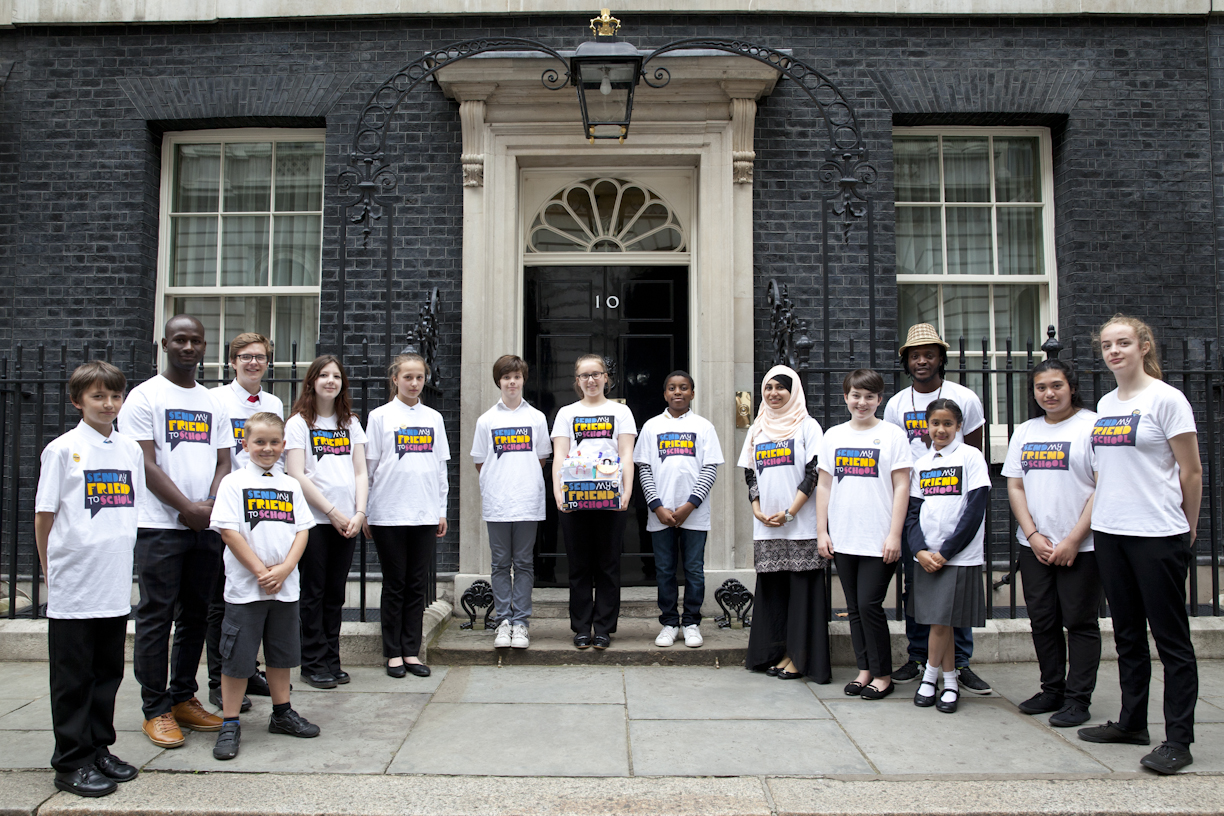“We need to hold the government to account to make sure they fulfil their promises, and ensure that no child is denied the right to an education because of emergencies. We need our leaders to speak out and support other countries- as they should not have to face these challenges alone” Jess (14), Campaign Champion from Croxley Danes School.

Jennifer, 24, teacher at Primary School, Palabek Refugee Settlement, Uganda. © Emmanuel Museruka, Oxfam Great Britain, 2021
Globally, we are seeing record levels of forced displacement, especially amongst children and young people who make up the 40% of the world’s refugees. Nearly 224 million school-aged children, a staggering 200% increase since 2016, are estimated to be affected by emergencies, including climate change and forced displacement, and are in need of urgent educational support.
We need to see concrete action by the UK government to ensure that all children can access education during times of crisis. This December, global leaders have two landmark opportunities at COP28 and the 2023 Global Refugee Forum (GRF) to deliver ambitious commitments to address these shared challenges, strengthen global resilience, and ultimately protect children’s right to education.
The Send My Friend to School Coalition is calling on the UK Government to take decisive action to ensure that COP 28 and the 2023 GRF deliver strong commitments on education. We are calling on the UK Government to make its own ambitious commitments on education and work with the international community to:
- Ensure that education is systematically integrated in the global climate agenda
- Mobilise the funding needed to support low- and middle-income hosting countries to provide quality education for refugee and host community children
This year alone, we’ve seen the devastating impacts of environmental disasters on education. From earthquakes in Türkiye to floods in Bangladesh, the scale of emergencies this year has strained education systems worldwide. Challenges in the education systems are already exacerbated by the negative long-term effects from the Covid-19 pandemic and this has deepened existing inequalities, disproportionately affecting those who are most marginalised and experiencing multiple, intersecting and complex challenges.
Low- and middle- income countries host most of the world’s refugees, but they often have limited resources with a lack of long-term funding by the international community, which prevents both refugee and host children accessing a quality education. Education is also overlooked in climate financing as little as 0.03% of all climate finance spent towards this.
Yet crisis-affected children and young people consistently highlight returning to education as a top priority. As part of our ‘Let My Friends Learn’ campaign we’re asking the UK Government to PREPARE, PROTECT, INVEST and ACT to protect children’s learning in emergencies. Education in emergencies (EiE) is life-saving and life-protecting, providing children with the skills to escape crises, build their resilience and most importantly sustain their hope for a brighter future.
We urge the UK government to take a just and inclusive approach to address the climate crisis and forced displacement, and ensure that all children can access quality, inclusive education that prepares them for the world that is facing immense transformations around them.
Find out more in SMF’s new policy briefs:
Download the joint policy brief here


 Send My Friend to School brings together thousands of children across the UK to speak up for the right to education.
Send My Friend to School brings together thousands of children across the UK to speak up for the right to education.